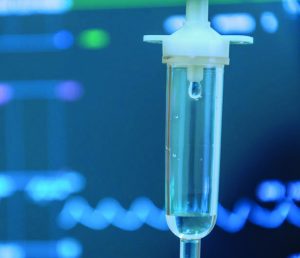By Dr. Steven Reichbach
 In a series of ongoing randomized tests, Ketamine therapy has become more widely accepted for its capacity to revamp the brain’s depressive episodes rapidly. Over the past several years, many physicians have studied the effects of Ketamine on depressed patients including those with PTSD and bipolar disorder. Board-certified anesthesiologist, Dr. Steven Reichbach of the Gulfcoast Ketamine Center, has extensive experience in managing his patients that benefit from this therapy, and he consistently sees the value of the Ketamine IV treatment in his patients that suffer from depression on a daily basis.
In a series of ongoing randomized tests, Ketamine therapy has become more widely accepted for its capacity to revamp the brain’s depressive episodes rapidly. Over the past several years, many physicians have studied the effects of Ketamine on depressed patients including those with PTSD and bipolar disorder. Board-certified anesthesiologist, Dr. Steven Reichbach of the Gulfcoast Ketamine Center, has extensive experience in managing his patients that benefit from this therapy, and he consistently sees the value of the Ketamine IV treatment in his patients that suffer from depression on a daily basis.
What is Ketamine?
Back in the 1960’s Ketamine was developed to treat wounded U.S. soldiers that were serving in the Vietnam War. In the 1970’s, Ketamine was the anesthetic of choice for surgery, and in the 1980’s it became a popular street and club drug because of its “out of body” sensation that it’s users experienced.
How does Ketamine Work?
Ketamine works by creating new connections in parts of the brain that control mood and emotions. These new neurological connections help the brain to send positive signals to the psyche, along with beneficial physical conditions to the body. The effect is notable within hours, but most patients report the results are instantaneous. These astonishing changes are visible in brain scans and imaging, and the results are long-lasting.
In recent FDA and other professional associated studies, patient results with ketamine show:
• Reduced pain
• Decreased depression
• Diminished suicidal thoughts and episodes
• Rapid ability to reverse depression and its symptoms
With our ongoing drug-related crisis, ketamine therapy can reduce the risk of opioids, benzodiazepines and other narcotic addictions. Physicians are often overprescribing these types of highly addictive drugs to help minimize or mask patient’s chronic pain, depression or other ailments. With Ketamine therapy, the treatment is safe, non-habit forming and highly effective.
How is Ketamine Administered?
For mental health disorders, the initial treatment series usually takes place over 2 weeks with 6 infusions every other day. The protocol is different when we treat chronic neuropathic pain syndromes.
Ketamine IV therapy impacts both mood and anxiety and can result in positive treatment outcomes for the following disorders:
• Severe or Chronic Depression
• Chronic Pain
• Bipolar Disorder
• Obsessive Compulsive Disorder (OCD)
• Post-Partum Depression (PPD)
• Post-Traumatic Stress Disorder (PTSD)
• Produces Rapid Onset of Neural Connections
It can be used a maintenance drug alone or in combination with conventional antidepressants and/or mood stabilizers. These decisions are made in conjunction with the patients other mental health care providers. Typically, following the initial six infusions, maintenance booster infusion (one day) are nedded every 1-6 months.
Medical Marijuana
In addition to ketamine infusions, the Gulfcoast Ketamine Center is also registered to recommend medical marijuana for specific disorders. The benefit of medical marijuana in treating a wide array of symptoms from multiple disorders is hard to argue. Many patients who have suffered for years with chronic pain and have become dependent on narcotics have not only had improvement in their
pain but have also been able to wean off of narcotic use. Cancer patients benefit from improved appetite, which allows them to improve their nutritional status naturally.
Chemotherapy patients have improvement in symptoms of nausea. The endocannabinoid system is intertwined with many of the body’s processes and able to help with a wide-range of symptoms.
The endocannabinoid system is a complex network of receptors and chemicals found in the central nervous system and other parts of the body. This system modulates a great many different functions in the human body. Deficiencies or increases in the receptors or hormones can cause the “normal equilibrium” to be disrupted and allows for disease states to develop. Cannabis acts on these same receptors to allow for the “equilibrium” to be restored, thereby alleviating the symptoms associated with these diseases. THC is the active ingredient in MM and is the substance that causes the “high.” When we refer to MM, we refer to high THC products. However, low THC products can also be very effective in alleviating many of the same symptoms.
To schedule an appointment, or to find out more about these breakthrough treatment options, please call 941-213-4444, or visit their website at findpainrelief.com







